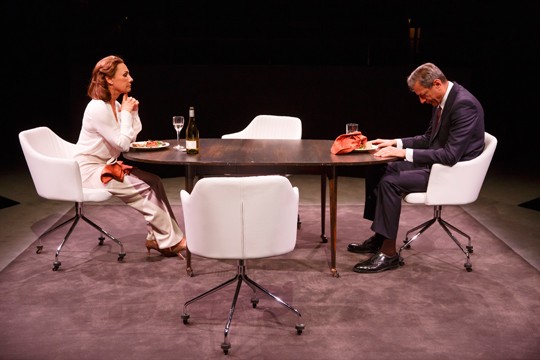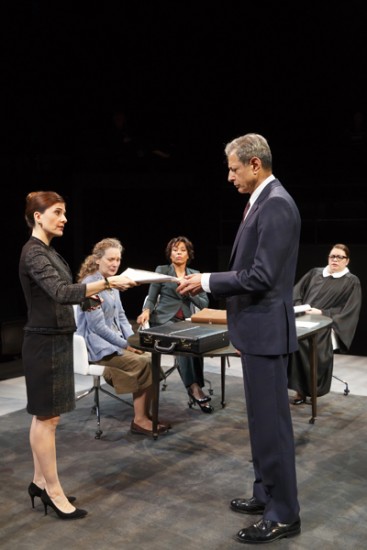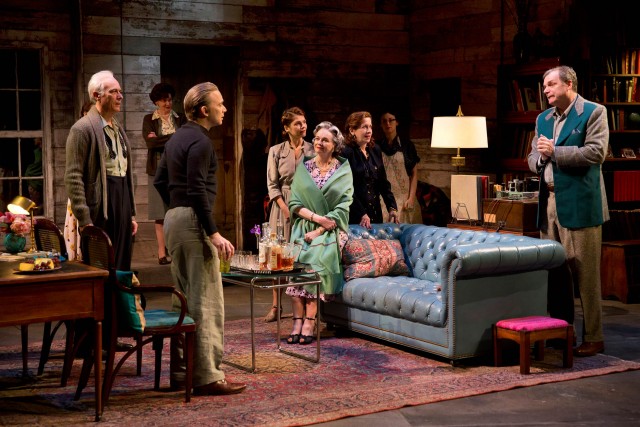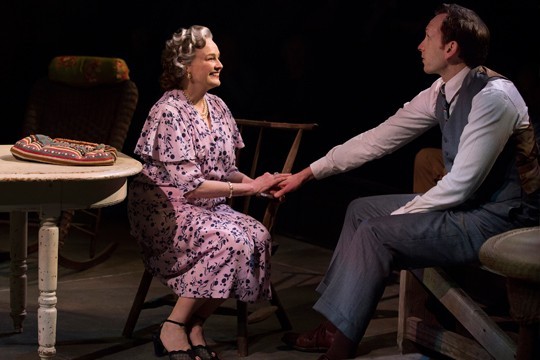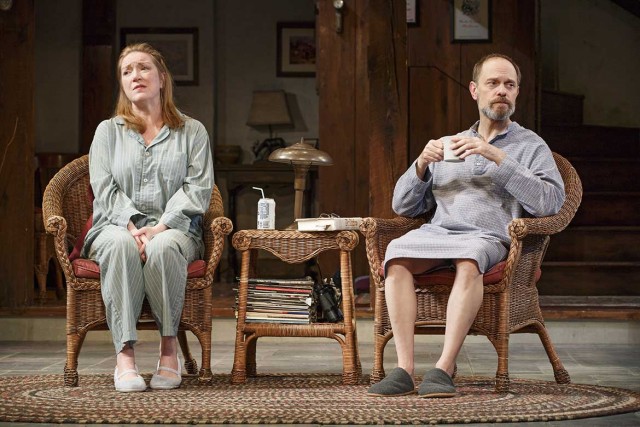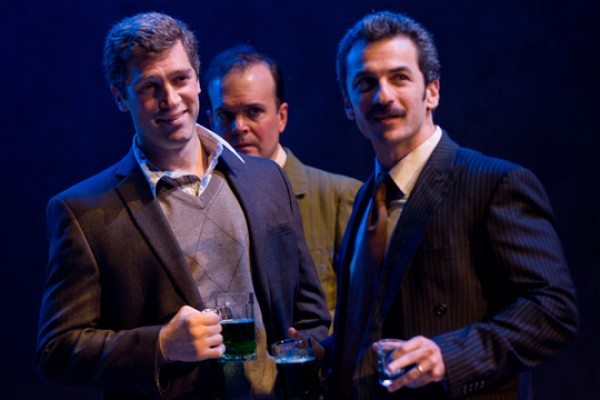
Georgetown hostess Hester Ferris’s (Jan Maxwell) carefully orchestrated dinner party doesn’t go quite as planned in new Anthony Giardina play (photo by Stephanie Berger)
Lincoln Center Theater at the Mitzi E. Newhouse
150 West 65th St. between Broadway & Amsterdam Ave.
Tuesday – Saturday through July 6, $87
212-362-7600
www.lct.org
Five-time Tony nominee Jan Maxwell gives a whirlwind performance as a Georgetown hostess trying to balance the personal with the political over the course of thirty years in Anthony Giardina’s The City of Conversation. Maxwell (Follies, Coram Boy) stars as Hester Ferris, an elegant liberal who hosts important dinner parties at her fancy home (the set is designed by the incomparable John Lee Beatty), where important men come to smoke, drink, and craft policy away from the craziness of Congress. The play begins in September 1979, as Hester and her sister, Jean Swift (Beth Dixon), prepare for the arrival of Kentucky senator George Mallonee (John Aylward) and his wife, Carolyn (Barbara Garrick); George, a Republican, has important business with Democrat Chandler Harris (Kevin O’Rourke), Hester’s married lover. But when Hester’s son, Colin (Michael Simpson), and his extremely ambitious right-wing girlfriend, Anna Fitzgerald (Kristen Bush), suddenly show up, Hester’s carefully planned party doesn’t go quite as expected, leading to a rift that grows as the play moves to October 1987, during the Reagan presidency, and then on to January 2009 as Barack Obama takes office.
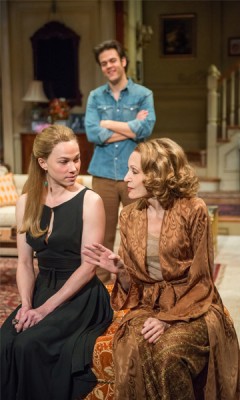
Hester (Jan Maxwell) has more than a few words for Anna (Kristen Bush) as son Colin (Michael Simpson) looks on (photo by Stephanie Berger)
The City of Conversation — the title comes from a Henry James quip about D.C. — looks back at a disappearing past, when the nation’s capital operated very differently from today. “That’s the way it used to be,” Hester tells Anna, relating a story about John F. Kennedy soliciting advice from columnist Joe Alsop regarding Cuba. “A president was able to get out of the White House, come to Georgetown, and learn something just because someone brilliant happened to be at dinner.” Novelist and playwright Giardina’s (Living at Home, Scenes from La Vie de Boheme) first work not specifically drawn from personal experience, The City of Conversation is a superbly acted, well-paced drama about legacy and power, going behind the scenes of a changing Washington where partisanship has affected policy, ended friendships, and torn families apart. Maxwell gives a virtuoso performance, an expert balance of rampant energy and subtle mood shifts as she tries to maintain her relationship with her Republican son and her grandson (Luke Niehaus) while also standing up and fighting for her beliefs. Aylward (The Kentucky Cycle) is excellent as George Mallonee, eating up and spitting out the stereotype of the country-bumpkin southern senator, while O’Rourke (Spoils of War, Checkers) provides solid support as Hester’s significant other. Director Doug Hughes (Outside Mullingar, The Royal Family with Maxwell) knows Giardina well, having directed his works for thirty years, so the play moves seamlessly through the decades, revealing a Washington that has grown dysfunctional perhaps past the point of no return. Be sure to pick up a copy of the Lincoln Center Theater Review, which includes the long, well-researched article “The Doyennes of D.C.” by Sally Bedell Smith as well as contributions from Giardina, Christopher Buckley, Jane Stanton Hitchcock, James Schroeder, and John Guare.
